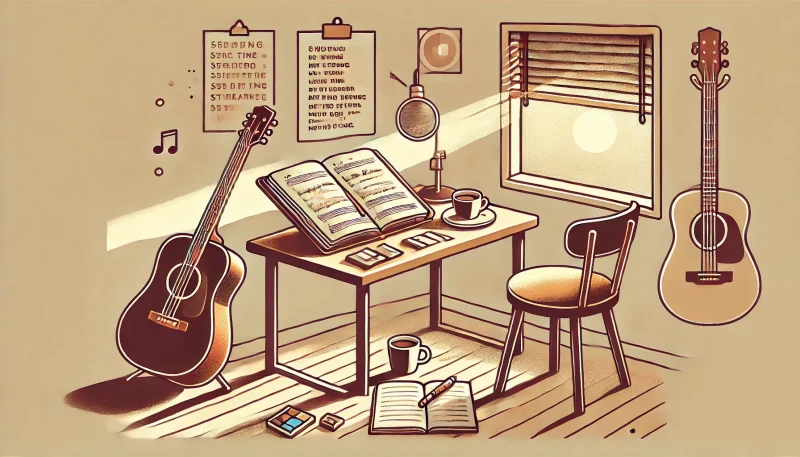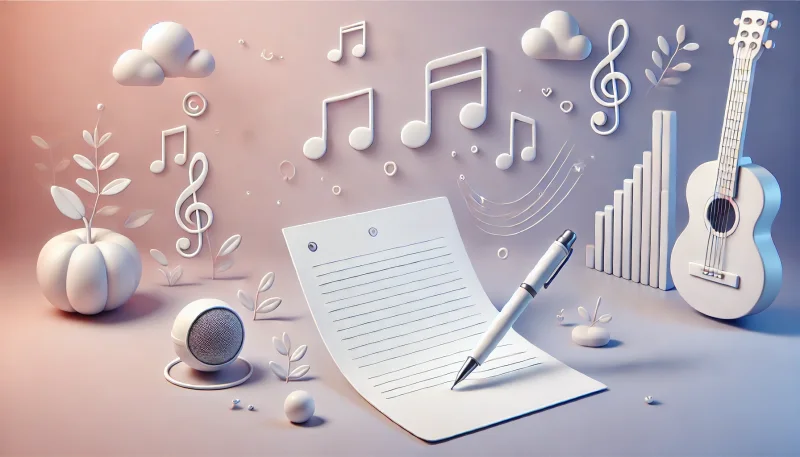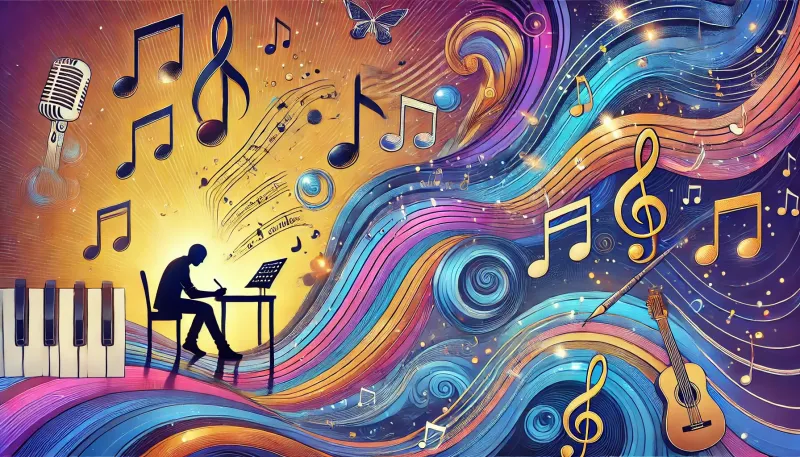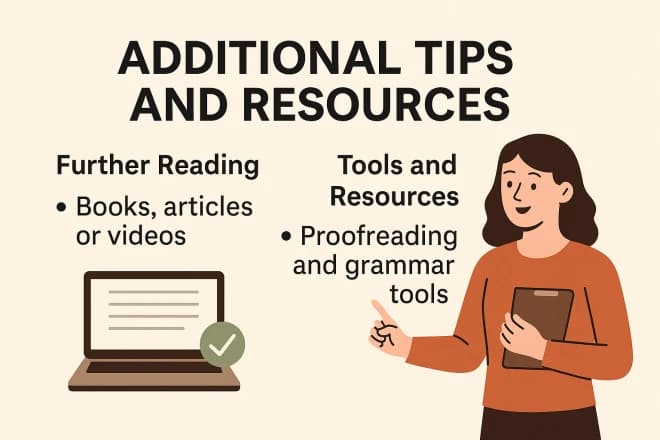Unlock Insights: Find the Answers You Seek on Our Blog
A Beginner’s Guide on How to Write Lyrics with Easy Tips
By Evelyn Sterling

Welcome to the Ultimate Guide to Writing Song Lyrics!
This resource is here to inspire and guide you through the art of songwriting. Whether you’re a beginner experimenting with your first verses or an experienced musician looking to refine your craft, writing lyrics is a powerful way to express emotions and tell stories.
In this guide, you’ll learn everything you need to create meaningful and memorable lyrics—from understanding song structures to finding inspiration and developing your unique style. With practical tips, examples, and tools, this resource will help you turn your ideas into songs that resonate with listeners. Let’s dive in and unlock the magic of songwriting together!
Understanding the Basics of Lyrics
What Are Lyrics?
Lyrics are the words in a song. They can tell a story, share emotions, or simply add fun and energy to the music. Think of lyrics as the heart of a song—they’re what make a tune personal and relatable. Without lyrics, a song might still sound great, but it wouldn’t have the same emotional connection or storytelling power.
Components of Lyrics
Most songs are made up of these main parts:
- Verses: These are like chapters in a book. They set up the story or theme and often change from one verse to the next.
- Chorus: This is the most memorable part of the song, the part people sing along to. It usually repeats and contains the main message or emotion.
- Bridge: A bridge is a short section that adds variety. It often gives the song a fresh perspective or builds toward the final chorus.
- Hook: This is the catchiest part of the song. It can be part of the chorus or even just a single line that sticks in your head.
Examples of Impactful Lyrics
Think about Adele’s “Hello”. The opening line, “Hello, it’s me,” instantly draws you in with its simplicity and emotion. Or Taylor Swift’s “Shake It Off”, where the chorus encourages listeners to let go of negativity. These lyrics are powerful because they’re relatable and easy to remember.
Understanding these basics will help you structure your own lyrics and make them stand out.
Finding Inspiration
Drawing from Personal Experiences
One of the best places to find inspiration is your own life. Think about moments that made you feel happy, sad, excited, or even confused. These emotions and stories can turn into powerful lyrics because they’re real and relatable. For example, if you’ve experienced heartbreak, you can write about what it felt like. Songs like “Someone Like You” by Adele come from deeply personal experiences, which is why they resonate so strongly with listeners.
Exploring Books, Movies, and Daily Life
Inspiration doesn’t have to come only from your life. Look at stories in books, movies, or even news articles. A movie scene might spark an idea for a love song, or a novel could inspire lyrics about adventure. Daily life is full of interesting moments, too—a walk in the park, a conversation with a friend, or even sitting in a coffee shop can give you ideas. The key is to pay attention to the world around you and jot down anything that catches your attention.
Using Prompts and Brainstorming
If you feel stuck, try using prompts or brainstorming techniques. Start with a simple idea, like “What does happiness feel like?” or “Describe a place you love.” Write down words or phrases that come to mind, even if they seem random. Another technique is freewriting—set a timer for 10 minutes and write nonstop about anything. These exercises can help spark new ideas and get your creativity flowing.
Finding inspiration is about staying curious and open to the world. You never know when an idea will strike, so keep a notebook or your phone handy to capture it!

Choosing a Theme and Tone
Why a Clear Theme Matters
Every great song has a clear message or theme. It’s the big idea behind your lyrics—the story or feeling you want to share. Without a theme, your song might feel scattered or confusing. A strong theme helps your lyrics connect with listeners and makes the song memorable. For example, if your theme is about love, focus on what kind of love: a new crush, heartbreak, or lasting commitment.
Matching Tone to Genre
The tone of your lyrics should fit the style of music you’re writing. For example:
- Pop: Fun and upbeat, often about love or confidence.
- Rock: Emotional and raw, great for themes like rebellion or personal struggle.
- Rap: Rhythmic and expressive, often tackling personal stories or social issues.
- Country: Story-driven, often about everyday life, family, or relationships.
Matching the tone to your genre helps the music and lyrics work together, creating a consistent vibe that listeners enjoy.
Examples of Themes
Themes give your lyrics direction. Here are a few common ones:
- Love: Songs like Ed Sheeran’s “Perfect” express deep affection.
- Struggle: Tracks like Eminem’s “Lose Yourself” show resilience and determination.
- Joy: Pharrell’s “Happy” is all about feeling good.
- Social Issues: Songs like Bob Dylan’s “Blowin’ in the Wind” discuss justice and change.
Pick a theme that means something to you. When you care about your message, it shows in your lyrics, and that connection draws people in!
Structuring Your Lyrics
Common Song Structures
Song structure is like a roadmap for your lyrics. It helps guide the listener through your song. Here are three common structures:
- AABA: This structure has two similar sections (A), followed by a different one (B), then back to the original (A). Example: The Beatles’ “Yesterday”.
- ABAB: Alternates between verse (A) and chorus (B). Example: Taylor Swift’s “Love Story”.
- Freestyle: This structure doesn’t follow a set pattern and lets you be as creative as you want. It’s often used in rap and experimental songs.
Choose a structure that fits the flow of your song and the message you want to deliver.
The Power of Repetition and Variation
Repetition makes a song catchy. It’s why choruses are repeated—they stick in your head! But too much repetition can feel boring. That’s where variation comes in. Change up your verses or add a unique bridge to keep things interesting. For example, in “Someone Like You” by Adele, the verses and chorus repeat, but the delivery changes, keeping the song fresh.
Tips for Hooks and Choruses
Hooks and choruses are the parts people remember most. A good hook should be simple, catchy, and tied to the song’s theme. Keep the words short and easy to sing. For instance, Pharrell’s “Happy” repeats the word “happy” in a fun, rhythmic way. To write a memorable chorus, focus on the main message of your song and use strong, emotional words.
By combining structure, repetition, and great hooks, you’ll create lyrics that are engaging and unforgettable!

Developing Your Writing Style
Exploring Rhyme Schemes
Rhyme is a key element in songwriting that makes lyrics flow and sound pleasing. There are different types you can try:
- End Rhymes: The last words of two lines rhyme, like in Katy Perry’s “Firework”: “sky” and “why.”
- Internal Rhymes: Rhymes within a single line, like in Eminem’s “Lose Yourself”: “palms are sweaty, knees weak, arms are heavy.”
- Free Verse: No rhymes at all—just focus on the meaning and rhythm. It works well for emotional or unconventional songs.
Experiment with these styles to find what fits your song and makes it unique.
Using Metaphors, Similes, and Imagery
Metaphors and similes add depth and creativity to your lyrics.
- A metaphor compares two things directly, like in John Mayer’s “Your Body Is a Wonderland”.
- A simile uses “like” or “as,” such as Taylor Swift’s “You Belong with Me”: “She wears short skirts, I wear T-shirts.”
Imagery paints a picture in the listener’s mind. Instead of saying “I’m sad,” describe the feeling: “Rain pouring on my windowpane.” These tools make your lyrics more vivid and engaging.
Balancing Simplicity and Complexity
Keep your lyrics simple enough for people to understand and sing along, but add a touch of complexity to keep them interesting. For example, Billie Eilish’s “Ocean Eyes” uses poetic language, but the emotions are easy to grasp. Strike a balance by writing honestly but finding creative ways to say it.
Your writing style grows with practice, so keep experimenting and let your voice shine through!
Refining Your Lyrics
Editing for Clarity, Rhythm, and Flow
Once you’ve written your lyrics, it’s time to polish them. Start by checking for clarity—are your ideas easy to understand? Remove anything that feels confusing or out of place. Next, focus on rhythm and flow. Sing or speak your lyrics out loud to see if the words fit naturally. If a line feels awkward, try rephrasing it or adjusting the length. Smooth, rhythmic lyrics make your song more enjoyable and easier to sing.
Matching Lyrics to the Melody or Beat
Your lyrics should fit seamlessly with the melody or beat of your song. Listen to your music carefully and make sure the words match the tempo and mood. For example, short, punchy words work well with fast beats, while longer, drawn-out phrases fit slower melodies. If something doesn’t fit, tweak the phrasing or change a few words until everything feels in sync. Think of the lyrics and music as partners—they need to work together.
Getting Feedback
Don’t be afraid to share your lyrics with others! Friends, family, or fellow songwriters can give you valuable feedback. They might spot something you missed or suggest a better way to express an idea. Joining a songwriting community or forum is another great way to get advice and inspiration. Hearing different perspectives can help you refine your lyrics and make them even stronger.
Refining takes time, but it’s worth the effort to make your lyrics clear, catchy, and perfectly suited to your music!
Overcoming Common Challenges
Dealing with Writer’s Block
Writer’s block happens to everyone, so don’t worry if you feel stuck. To reignite creativity, try taking a break and doing something unrelated to songwriting, like going for a walk or listening to music you love. Another trick is freewriting—set a timer for 10 minutes and write whatever comes to mind without worrying if it makes sense. You can also use prompts like “What’s the happiest memory you have?” or “Describe a stormy night.” These techniques can help spark new ideas and get you back on track.
Avoiding Clichés and Overused Phrases
It’s easy to fall into the trap of using phrases like “love is a battlefield” or “tears fall like rain.” While these are familiar, they can make your lyrics feel unoriginal. Instead, think of fresh ways to say the same thing. Use personal experiences or unique descriptions to make your words stand out. For example, instead of “heartbreak,” describe how it feels: “like a clock that stopped ticking.” Originality makes your lyrics memorable and meaningful.
Staying Authentic to Your Voice
The best lyrics come from being true to yourself. Don’t try to copy someone else’s style—write in a way that feels natural to you. If you’re funny, let that humor shine in your songs. If you’re emotional, dive into those feelings. Authenticity connects with listeners because it’s honest and real. People love songs that feel like they come from the heart.
Facing challenges is part of the creative process, but with patience and practice, you can overcome them and create lyrics you’re proud of!
Practical Tools and Resources
AI Song Lyrics Generator Online Tool
An AI Song Lyrics Generator is a tool designed to help you create song lyrics quickly and easily. It uses artificial intelligence to generate lyrics based on your input, like a theme, mood, or genre.
How It Works
- You provide some basic details, such as the topic (e.g., love, adventure) or style (e.g., pop, rock, rap).
- The AI analyzes your input and generates a set of lyrics that match your preferences.
- Some tools allow further customization, letting you refine the lyrics to suit your unique style.
Online Rhyming Dictionaries and Thesauruses
Finding the right word can be tricky, especially when you’re trying to rhyme. Websites like RhymeZone or WordHippo can quickly suggest rhymes, synonyms, and related words. If a word doesn’t quite fit, a thesaurus can help you find alternatives that keep the meaning but work better in your song. These tools are especially useful when you’re stuck on a single line and need a little push.
Books and Courses on Songwriting
If you want to dive deeper into songwriting, there are many great books and online courses. Books like “Writing Better Lyrics” by Pat Pattison offer detailed advice on crafting meaningful lyrics. Websites like Udemy or MasterClass have songwriting courses taught by professional musicians, where you can learn techniques and get inspired. These resources give you valuable tips and guidance to improve your skills.
By using these practical tools and resources, you’ll find that songwriting becomes more enjoyable and less overwhelming!
Conclusion
Songwriting is a skill that gets better with time and practice. Don’t worry if your first lyrics aren’t perfect—every great songwriter started somewhere. The key is to keep going, stay curious, and enjoy the process.
Start small by writing just a few lines today. Experiment with different themes, structures, and styles to find what works for you. With persistence and creativity, you’ll soon be crafting lyrics that connect with others and bring your music to life. Now, grab a pen, and let your ideas flow!
AI Tools Categories
Browse all AI tools by category
All AI Tools
229Amazon
5AI Writing Generator
85Article & Content Writing
35Branding & Identity
54Content Generation
170Creative Ideas
32Educational Resources
34E-commerce
14Etsy
6Events & Celebrations
13Facebook
6Gaming & Fun
5Instagram
3Lifestyle & Personal
8LinkedIn
6Marketing & SEO
40Poem & Lyrics Writing
19Professional Documents
31Social Media
44Story & Book Writing
49Text Effects
14TikTok
7Twitter
3Writing Enhancement
36YouTube
11
Highly rated and most popular AI tools curated by our experts
Recently added AI tools that are gaining traction
- AI Post Generator

- AI Bullet Point Generator

- AI Discussion Post Generator

- AI 2 Weeks Notice Letter Generator

- AI Content Creation Ideas Generator

- AI Radio Ad Script Generator

- AI Podcast Script Generator

- AI Resume Objective Generator

- AI Resume Headline Generator

- AI Password Generator

- AI Snapchat Caption Generator

- AI Snapchat Username Generator

- AI Pinterest Board Name Generator

- AI LinkedIn Experience Description Generator

- AI Twitter Hashtag Generator

- AI YouTube Short Idea Generator

we prioritize displaying the latest content closely related to the current blog post.







